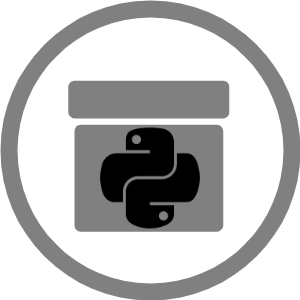https://github.com/containers/containerimage-py
A python library for interacting with container images and container image registries
https://github.com/containers/containerimage-py
Last synced: 27 days ago
JSON representation
A python library for interacting with container images and container image registries
- Host: GitHub
- URL: https://github.com/containers/containerimage-py
- Owner: containers
- License: apache-2.0
- Created: 2025-04-12T18:29:40.000Z (about 2 months ago)
- Default Branch: main
- Last Pushed: 2025-05-12T01:06:41.000Z (28 days ago)
- Last Synced: 2025-05-13T13:17:54.778Z (27 days ago)
- Language: Python
- Homepage:
- Size: 5.33 MB
- Stars: 2
- Watchers: 2
- Forks: 2
- Open Issues: 5
-
Metadata Files:
- Readme: README.md
- Contributing: CONTRIBUTING.md
- License: LICENSE
Awesome Lists containing this project
README

# containerimage-py
[](https://github.com/containers/containerimage-py/actions/workflows/test.yaml) [](https://github.com/containers/containerimage-py/actions/workflows/sec.yaml) [](https://github.com/containers/containerimage-py/actions/workflows/doc.yaml) [](https://github.com/containers/containerimage-py/actions/workflows/build.yaml)
A python library for interacting with container images and container image registries
**Docs**: https://containers.github.io/containerimage-py/
**Contributing**: [CONTRIBUTING.md](https://github.com/containers/containerimage-py/blob/main/CONTRIBUTING.md)
## Quick Example
Here is a quick motivating example for how you might use `containerimage-py` in your python scripts to fetch basic information about a container image.
```python
from image.containerimage import ContainerImage
# Initialize a ContainerImage given a tag reference
my_image = ContainerImage("registry.k8s.io/pause:3.5")
# Display some basic information about the container image
print(
f"Size of {str(my_image)}: " + \
my_image.get_size_formatted(auth={}) # 499.91 MB
)
print(
f"Digest for {str(my_image)}: " + \
my_image.get_digest(auth={}) # sha256:1ff6c18fbef2045af6b9c16bf034cc421a29027b800e4f9b68ae9b1cb3e9ae07
)
```
To run this example, simply execute the following from the root of this repository
```sh
python3 examples/quick-example.py
```
## Installation
### Using Pip
Run the following command to install the latest version of this package
```
pip install containerimage-py
```
### Local Install
1. Clone this repository
2. [Build the project from source](#build)
3. Locate the `.whl` (wheel) file in the `dist` folder
- It should be named something like so: `containerimage_py-0.1.0-py3-none-any.whl`
4. Run the following command from the root of the repository, replacing the name of the `.whl` file if necessary
```
pip install dist/containerimage_py-0.1.0-py3-none-any.whl
```
## Build
From the root of this repository, execute
```sh
make build
```
Under the hood, this will execute `python3 -m build` and produce a `.whl` (wheel) and `.tgz` (TAR-GZip archive) file in the `dist` subdirectory. For more on this project's make recipes, see [CONTRIBUTING.md](https://github.com/containers/containerimage-py/blob/main/CONTRIBUTING.md#other-make-recipes).